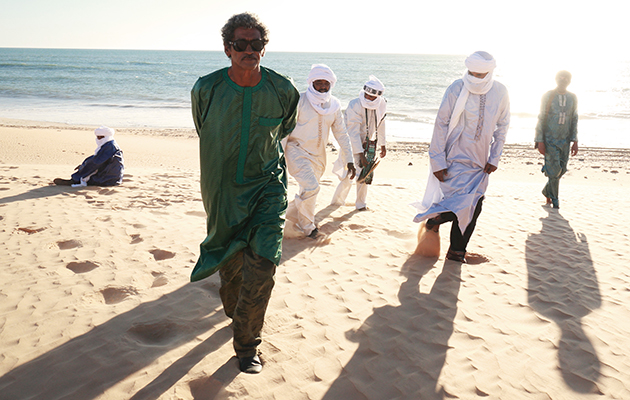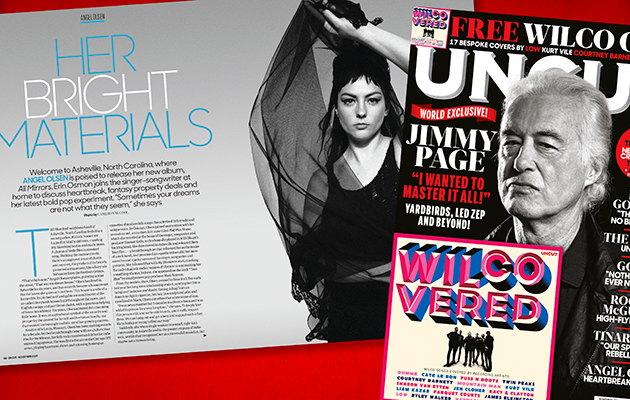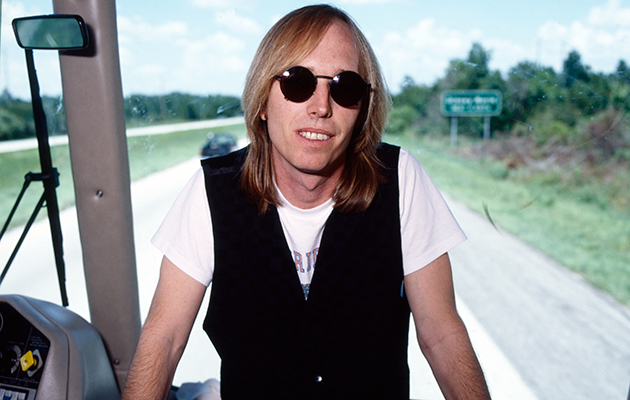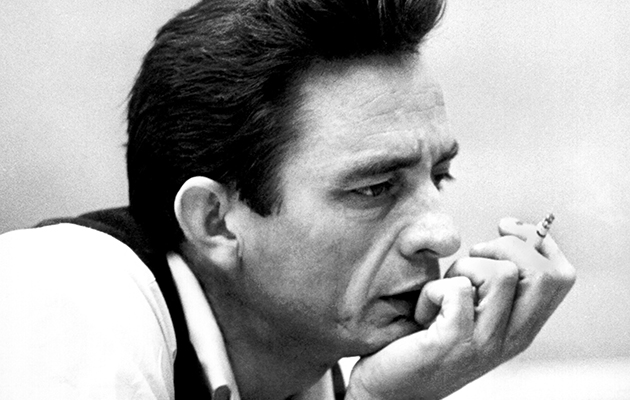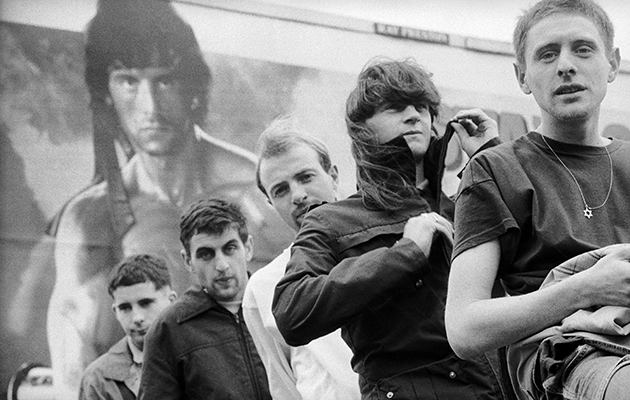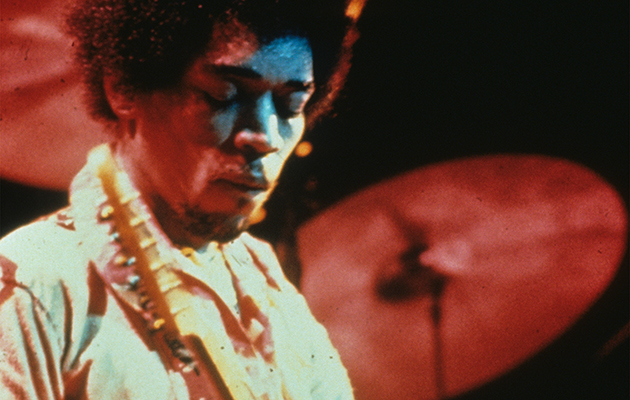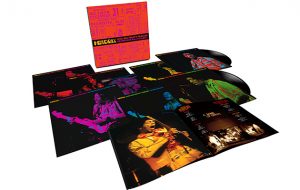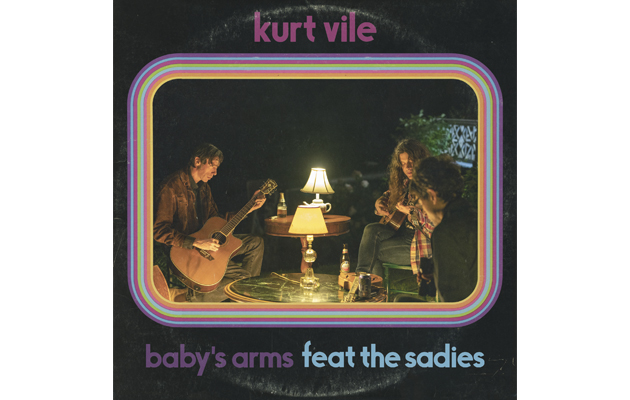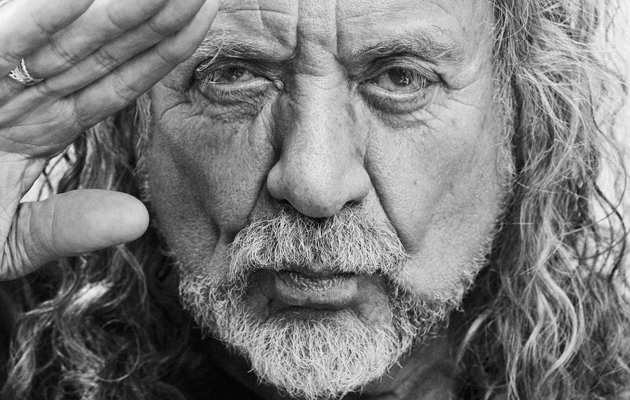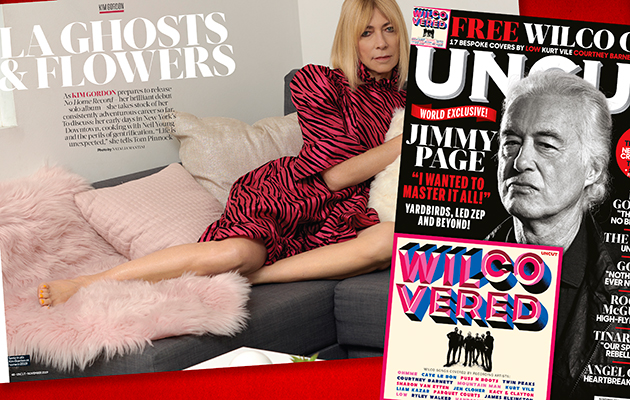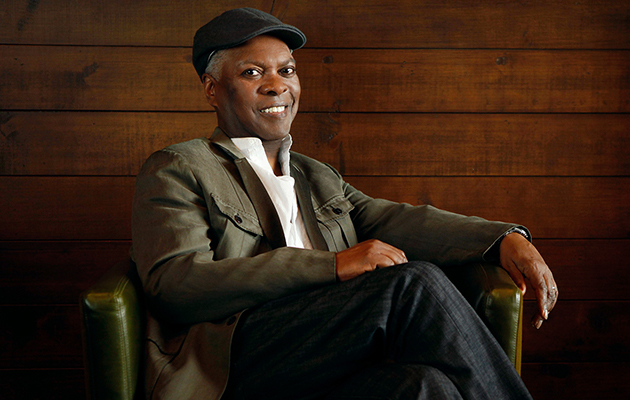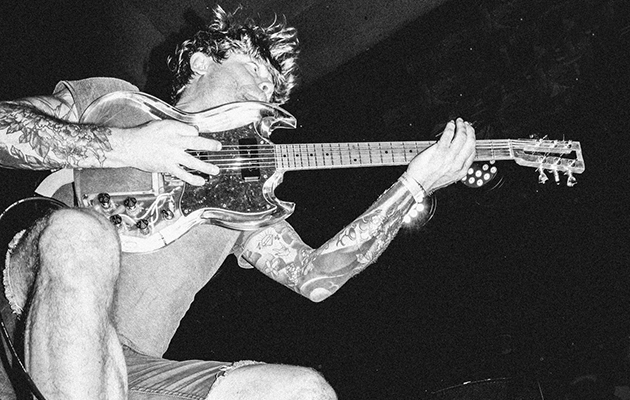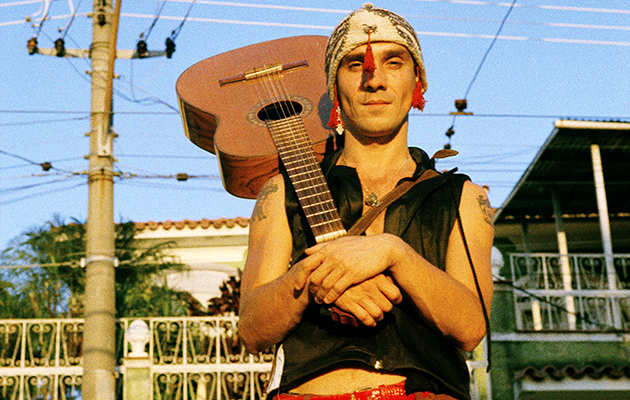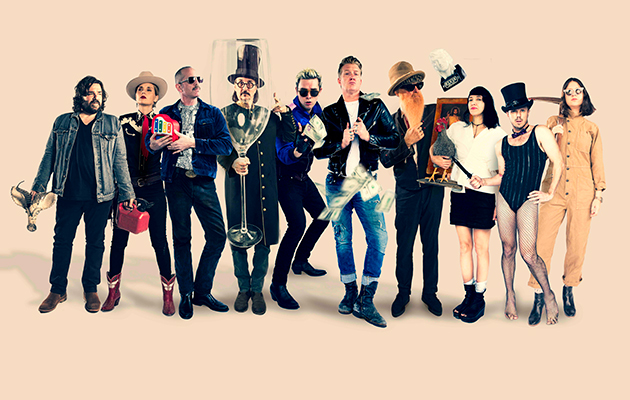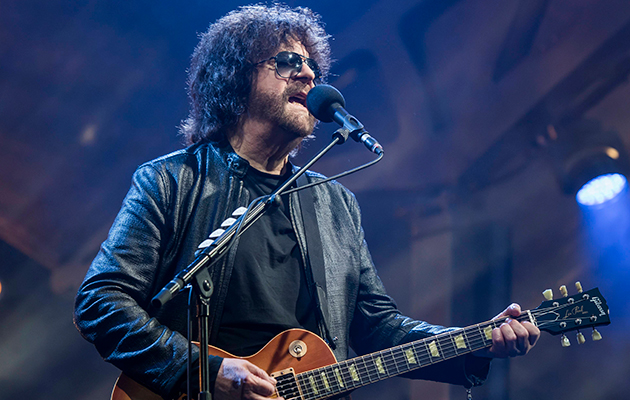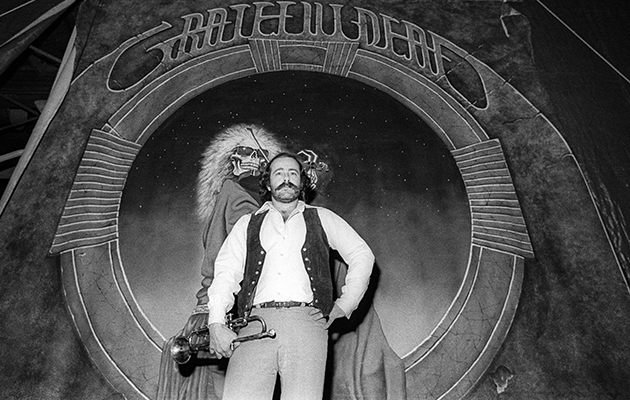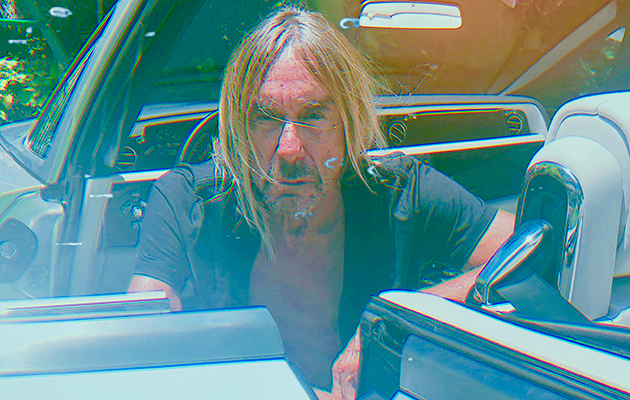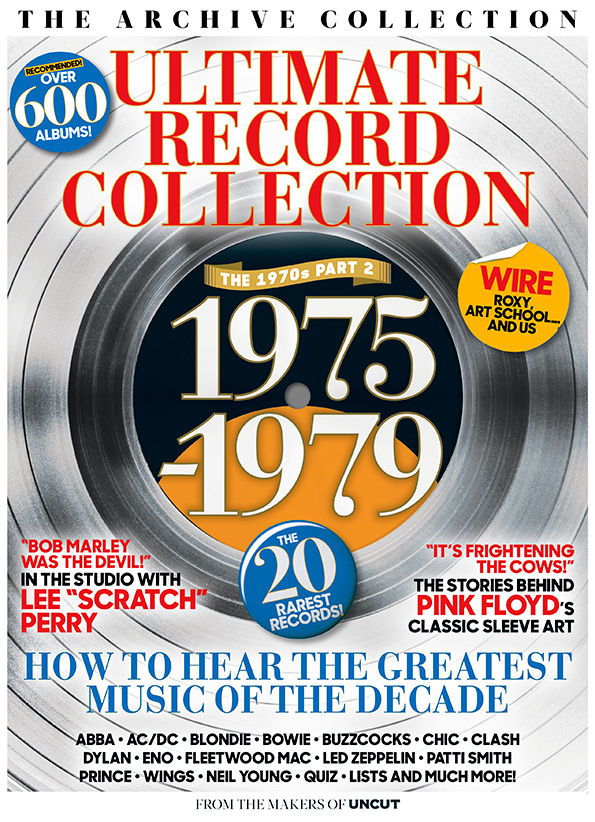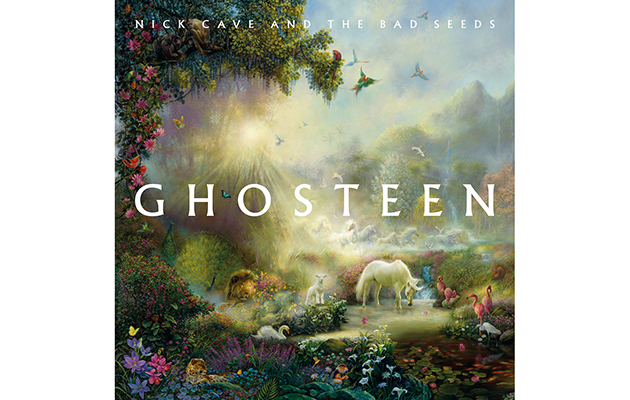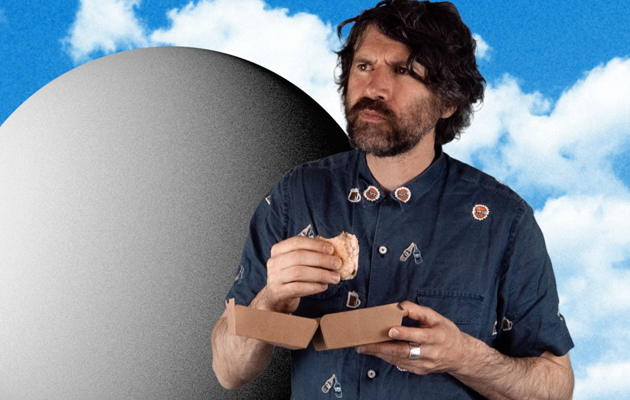This feature originally appeared in the November 2018 issue of Uncut (Take 258).
MIKE CAMPBELL: “In the hospital, lying in the bed, I talked to him a little bit. He couldn’t communicate but maybe he heard me, I don’t know. It’s hard to put into words, but I had an opportunity on the plane a couple of times towards the end of the last tour to connect, to say all the things I really wanted to say to him. We were able to touch base, to identify our bond and our friendship in a very powerful way. I feel fortunate to have had those moments with him, not knowing what was going to unfold.
“There was something special about the last show we did, a week before he passed, at the Hollywood Bowl. It was our homecoming. It had been a long tour, everything had been sold out, we were at the top of our game. There was one particular moment that stays with me. Near the end I looked over at Tom and his face was beaming; just so much happiness. I remember thinking, ‘This guy loves what he’s doing, and he wouldn’t want to be anywhere else than where he is right now, playing with the band in front of these people.’ His love of the craft and of the band and the music was contagious, and I felt it in that moment very strongly.
Order the latest issue of Uncut online and have it sent to your home!
“I’m not a retrospective person, but since he passed away I’ve been forced to look back. I was very hands-on with the American Treasure boxset. It was bittersweet. As kids, we shared a dream together. I have a vivid memory of the first time we met. I was living in Gainesville, where Tom had a band called Mudcrutch. They were kind of a country-rock band, and Tom was the bass player. I had a little blues jam band and our drummer, Randall Marsh, auditioned for Mudcrutch. When they came out to this farm on the edge of town to audition Randall, it turned out their guitar player had just left, so Randall brought me out, too. They took one look at me and wanted to leave. I had short hair and cut-off jeans and I weighed 110lb. I had this cheap Japanese guitar which was all I could afford. I could see this look in Tom’s eye: ‘This ain’t gonna work!’ Then I ripped into a Chuck Berry song and all their faces changed. It was like, ‘OK, you’re in the band!’ That’s how it went. We’ve been playing together ever since.
“When we moved to Los Angeles, we were fish out of water. We were overwhelmed by the culture shock at the beginning, but we stuck it out, even when Mudcrutch fell apart in the studio. Some other guys from Gainesville, Stan Lynch and Ron Blair, happened to be out there. They became the rhythm section, and we became the Heartbreakers. Ron played bass and Tom became the singer. He switched over to guitar because he was writing songs on guitar. His songwriting improved tremendously around that time. He came up with ‘American Girl’, ‘Fooled Again’, ‘Strangers In The Night’, all this great stuff.
“When we cut ‘American Girl’, we were still struggling, making 100 bucks a week, but I just knew that song had something about it. It all came together. It had that chiming, droning sound, Byrdsy chords, a nice tough beat, and those powerful words. It was adrenalin from the first note. I still get a fucking thrill every time I hear it, and the words hold up: ‘If she had to die tryin’, she had one little promise she was gonna keep…’ Tom’s genius was he could write so much in just a few words. He was brilliant at that, it came naturally to him. He didn’t have to write a book to get his point across, he could put together three or four words in the right juxtaposition that could mean anything to anybody.
“We started to write a little bit together. He was so prolific, I was lucky to get one in now and then. In the early days it was simple. I never wrote words. I was kind of intimidated, because his lyrics were so impressive to me. I would write a chord sequence and a rhythm, and if I was lucky he would hear something and be inspired by it. He’d come back the next day and have written this great song to my music. That was how we wrote ‘Refugee’, ‘Here Comes My Girl’, ‘Woman In Love’, ‘Rocking Around With You’, ‘Stop Draggin’ My Heart Around’. All those early songs. It’s thrilling to have that relationship with somebody. It’s a deep connection, to sit and write a song with someone, to share your music and have them add to it and make it better. The next thing you know you’re on stage together playing it, and 20,000 people are singing the words back at you. It’s a powerful thing. It’s probably what I miss the most.
“The high point early on was when Damn The Torpedoes hit through the mainstream. We were a great live band, but in the studio sometimes we would get insecure, and we had to do the tracks over and
over again until we got one take that was good. Our producer Jimmy Iovine suffered through that with us. When Jimmy heard ‘Refugee’ and ‘Here Comes My Girl’ he said, ‘That’s all I need to hear. I don’t care what the rest of the record is. If we get those songs right, we’ll be OK.’ ‘Refugee’ is so timeless. Those lyrics are as real today as when he wrote them.
“Things had changed by then. When we started in Florida it was all for one and one for all. We didn’t make much money, so we split everything equally. When we got out west, it became obvious to everyone that Tom was the leader of the band, and he was also making a lot of management decisions. He was on the phone, making deals, writing the songs, singing
the songs, directing the band. So we came to an understanding that we should split the pie differently, because this guy is doing 10 times as much work as we are. At first there was a bit of grumbling, but then we thought, ‘No, this is working.’ We let it go and we never brought it up again. Tom was very graceful about it. We all loved the band so much, we never let our personal egos get in the way of ruining that. That’s why we stayed together so long. It wasn’t about the money; it was about the music. Also, we loved each other.
“Tom was a great leader in every sense of the word. He was definitely in control; we were following his lead every step of the way. Fortunately, he was almost always right! Every band needs somebody like that, with that drive, yet it was also a democracy in lots of ways. He would bring in a new song and
be very free: ‘Just play what you feel.’ What we argued about most was when he felt that the feel wasn’t right. He’d say, ‘It’s not grooving the way
I want it to groove. OK, everybody stop playing, and let’s just listen to me and my guitar. Listen again, real close, because there’s a rhythm that we’re missing. There’s a sway that I really want.’
“Sometimes there would be tension, but that kind of tension can be very creative. We didn’t shout much. We never got into fistfights or said, ‘Fuck you!’ It was all very constructive criticism. Tom would fight to the death to get it right, but he was a joy to work with. His instincts were so strong, we knew if we did our best to follow his lead it was going to be good. We believed in him, and he believed in us, too. He believed we could get him there.
“Tom would not be pushed around. He was a very powerful personality. With Hard Promises, the record company wanted to raise the ticket price on albums, and our record was going to be the first one out with the new high price. Tom simply said no. ‘I’m not going to be the one jacking the people around for more money. That’s not what we’re about.’ So we refused to record. We went out on what we called the Bankruptcy Tour, and we didn’t record until we sorted out the business. They eventually put the record out at the price we wanted. That was Tom. The reason he maintained his integrity all those years is that he stood up for what he thought was right. Always.
“The Heartbreakers tour in 1986 with Bob Dylan came along at the point after Southern Accents where we were kind of bored with each other. It revitalised us, made us interested again. Bob said that talking to the band was like talking to one guy. The whole band was a single persona. As a group, we were of one mind. He liked that. It was great for Tom, because we would do a short Heartbreakers set, and then Tom would assume the role of guitar player and harmony singer in the band with Bob. He was able to step back and be in the band without having to front it. I think that was really good for him. It gave him a new perspective and it gave us new blood. We came off that tour and made Let Me Up (I’ve Had Enough), which is a very raw, live record.
“When it came to Tom making Full Moon Fever as a solo album, it was very organic. He didn’t wake up one day and say, ‘I want to be a solo artist.’ Tom bumped into Jeff Lynne, and they wrote ‘Free Fallin’’. Tom said, ‘Let’s go over to Mike’s house, he has a studio.’ Jeff is a fucking genius, and by the end of the afternoon we had a finished record. Tom and I were looking at each other, like, ‘Wow, that was fun! Let’s do another one.’ Four days went by and we had four finished tracks. We explained to the Heartbreakers that this had become a little side project, but we weren’t breaking up the band. I’m sure the guys felt a little left out, but they got over it. That’s how it happened. No big deal.
“We finished Full Moon Fever in three weeks, and when we turned it in, the record company refused it. They didn’t hear any hits. What the fuck? We thought this was pretty good! Tom said, ‘OK, if they want a hit, let’s go and do a Byrds song.’ So he covered ‘Feel A Whole Lot Better’. That was Tom being kind of passive-aggressive. In the interim, the whole A&R department revolved, and
a new group of people came in. We played them the same record and they jumped up and down and said, ‘There’s four hits on here!’ Go figure.
“Roy Orbison and George Harrison were on that record. Jeff produced. We all knew Bob. So, it evolved into the Traveling Wilburys. It was very comfortable for Tom; I don’t believe he ever felt intimidated. The cool thing about the other Wilburys, and Johnny Cash, and Del Shannon, and all these other amazing people he was fortunate enough to work with, is that it was just about making music. You only think, ‘Man, there’s a Beatle in my house,’ for a little while. That veneer wears off pretty quick. Then it’s just another guy that you’re working with. Musicians have a certain unspoken affinity to one another… They understood each other, and they were having fun. It was a beautiful project, and it was healthy for Tom to be part of a group and not feel the pressure that all the songs and vocals were on him. I think that pressure sometimes got to him. If it failed, it was all on him, ultimately. With the Wilburys, he didn’t have that.
“Of course, after all that he came back to the Heartbreakers with fire! ‘I’m tired of being part of a committee, I want to be in charge again.’ When I hear the band on the first couple of records,
there is youthful exuberance and just total excitement. Later on, we had the confidence to explore and add nuance. It got a little more adult, a bit more finessed, but basically we kept doing the same thing. He felt the band made him more who he wanted to be than being a solo artist could. That was his choice. He chose the band all the way down the line. It was a brotherhood.
“He was committed to being great. We’d work on stuff sometimes that sounded pretty good, and he’d say, ‘Let’s throw that one out, I can do better.’ He saw through bullshit instantly; he knew what was good and what wasn’t. He knew what was phoney and he knew what was real. He had that in spades. I’d look at him sometimes and think, ‘This guy is on his game. He knows who he is, and he knows how to get it across.’ He was a great songwriter, good rhythm-guitar player, great bass player. Great record maker. He was all those things. Perhaps his defining characteristic as a player was his confidence. Plus, he was really fucking smart.
“As time went on he would find less and less new music to get inspired by. We would check out new things. We liked Nirvana, we thought that was a great thing for the music business, but a lot of the time Tom went back to the stuff that he really loved, from the ’50s and ’60s.
“I was surprised in 2007 when he said, ‘Let’s do a Mudcrutch record.’ Just before that he had been complaining that he never had any free time! Reuniting Mudcrutch obviously wasn’t about the money. He got Randall and Tom Leadon, brought them in, and one thing led to another. I thought that was very kind and generous of him, to bring them into the spotlight and give them something bigger to do with their music than what they had been doing.
“Tom was a great friend. If any one of us needed him, he was there. We didn’t socialise a lot off the tour, especially as we got older, because we’d need a break and we had other interests. A month or two might go by and I wouldn’t even speak to him, then he’d get on the phone and we’d talk for two hours. Even though he was a leader, in a lot of ways, I was a big brother for him. Sometimes I could tell that he’d be a little lost on something; I’d sit down and talk to him and give him perspective. He always seemed to appreciate that. When he was having trouble with his marriage, or his kids, we’d talk about it. We were just connected. We loved each other, and I considered him my best friend.
“The last Heartbreakers tour was phenomenal. We played as well as we’d ever played. We were never going through the motions. Tom loved the band. He was always really proud of the group, and on a good night he believed we were one of the best bands in the world.
“I can’t even conceive of playing those songs without Tom. It would just be too painful right now. He was a powerful force. You just don’t replace him. At his memorial I gave a little speech. The main thing I said is that my intention from this point forward is to honour his integrity and his legacy. I won’t do anything that would compromise that.
“I’m still grieving. I’ll probably be grieving for a long time, but I feel blessed that we had our time, and we wrote a lot of great songs which I think are going to hold up long after I’m gone. Everything is in the songs. The guy who wrote those songs, that’s who Tom is, that’s what he was like. He had a deep love of humanity. He had a deep belief in hope and the power of rock’n’roll, and he was compassionate towards people in pain. And sometimes he was a stinker! I don’t want to paint a rosy-red picture of a perfect person. We all have our flaws, but deep down he had a good heart. I’m very grateful and proud of what we did together. I miss my friend, but we have to go on.”
As told to Graeme Thomson
The November 2019 issue of Uncut is on sale now, with Jimmy Page on the cover. Our free CD features 17 exclusive cover versions of Wilco songs recorded for us by Low, Courtney Barnett, Cate Le Bon, Kurt Vile and many more. Elsewhere in the issue, there’s Kim Gordon, The Clash live and unseen, Angel Olsen, Tinariwen, Bruce Hornsby, Super Furry Animals, Bob Nastanovich on David Berman and Roger McGuinn.



